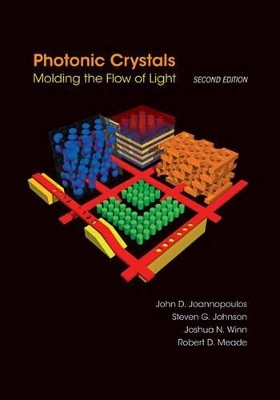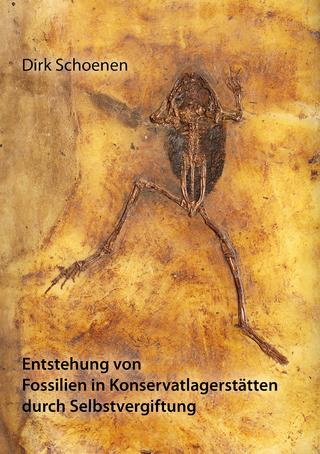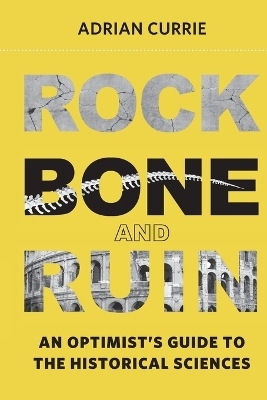
Photonic Crystals
Princeton University Press (Verlag)
978-0-691-12456-8 (ISBN)
Since it was first published in 1995, Photonic Crystals has remained the definitive text for both undergraduates and researchers on photonic band-gap materials and their use in controlling the propagation of light. This newly expanded and revised edition covers the latest developments in the field, providing the most up-to-date, concise, and comprehensive book available on these novel materials and their applications. Starting from Maxwell's equations and Fourier analysis, the authors develop the theoretical tools of photonics using principles of linear algebra and symmetry, emphasizing analogies with traditional solid-state physics and quantum theory. They then investigate the unique phenomena that take place within photonic crystals at defect sites and surfaces, from one to three dimensions. This new edition includes entirely new chapters describing important hybrid structures that use band gaps or periodicity only in some directions: periodic waveguides, photonic-crystal slabs, and photonic-crystal fibers. The authors demonstrate how the capabilities of photonic crystals to localize light can be put to work in devices such as filters and splitters.
A new appendix provides an overview of computational methods for electromagnetism. Existing chapters have been considerably updated and expanded to include many new three-dimensional photonic crystals, an extensive tutorial on device design using temporal coupled-mode theory, discussions of diffraction and refraction at crystal interfaces, and more. Richly illustrated and accessibly written, Photonic Crystals is an indispensable resource for students and researchers. * Extensively revised and expanded * Features improved graphics throughout * Includes new chapters on photonic-crystal fibers and combined index-and band-gap-guiding * Provides an introduction to coupled-mode theory as a powerful tool for device design * Covers many new topics, including omnidirectional reflection, anomalous refraction and diffraction, computational photonics, and much more.
John D. Joannopoulos is the Francis Wright Davis Professor of Physics at the Massachusetts Institute of Technology. Steven G. Johnson is assistant professor of applied mathematics at MIT. Joshua N. Winn is assistant professor of physics at MIT. Robert D. Meade is a physicist and former research scientist at MIT. He currently works in equity trading.
Preface to the Second Edition xiii Preface to the First Edition xv Chapter 1: Introduction 1 Controlling the Properties of Materials 1 Photonic Crystals 2 An Overview of the Text 3 Chapter 2: Electromagnetism in Mixed Dielectric Media 6 The Macroscopic Maxwell Equations 6 Electromagnetism as an Eigenvalue Problem 10 General Properties of the Harmonic Modes 12 Electromagnetic Energy and the Variational Principle 14 Magnetic vs. Electric Fields 16 The Effect of Small Perturbations 17 Scaling Properties of the Maxwell Equations 20 Discrete vs. Continuous Frequency Ranges 21 Electrodynamics and Quantum Mechanics Compared 22 Further Reading 24 Chapter 3: Symmetries and Solid-State Electromagnetism 25 Using Symmetries to Classify Electromagnetic Modes 25 Continuous Translational Symmetry 27 Index guiding 30 Discrete Translational Symmetry 32 Photonic Band Structures 35 Rotational Symmetry and the Irreducible Brillouin Zone 36 Mirror Symmetry and the Separation of Modes 37 Time-Reversal Invariance 39 Bloch-Wave Propagation Velocity 40 Electrodynamics vs. Quantum Mechanics Again 42 Further Reading 43 Chapter 4: The Multilayer Film: A One-Dimensional Photonic Crystal 44 The Multilayer Film 44 The Physical Origin of Photonic Band Gaps 46 The Size of the Band Gap 49 Evanescent Modes in Photonic Band Gaps 52 Off-Axis Propagation 54 Localized Modes at Defects 58 Surface States 60 Omnidirectional Multilayer Mirrrors 61 Further Reading 65 Chapter 5: Two-Dimensional Photonic Crystals 66 Two-Dimensional Bloch States 66 A Square Lattice of Dielectric Columns 68 A Square Lattice of Dielectric Veins 72 A Complete Band Gap for All Polarizations 74 Out-of-Plane Propagation 75 Localization of Light by Point Defects 78 Point defects in a larger gap 83 Linear Defects and Waveguides 86 Surface States 89 Further Reading 92 Chapter 6: Three-Dimensional Photonic Crystals 94 Three-Dimensional Lattices 94 Crystals with Complete Band Gaps 96 Spheres in a diamond lattice 97 Yablonovite 99 The woodpile crystal 100 Inverse opals 103 A stack of two-dimensional crystals 105 Localization at a Point Defect 109 Experimental defect modes in Yablonovite 113 Localization at a Linear Defect 114 Localization at the Surface 116 Further Reading 121 Chapter 7: Periodic Dielectric Waveguides 122 Overview 122 A Two-Dimensional Model 123 Periodic Dielectric Waveguides in Three Dimensions 127 Symmetry and Polarization 127 Point Defects in Periodic Dielectric Waveguides 130 Quality Factors of Lossy Cavities 131 Further Reading 134 Chapter 8: Photonic-Crystal Slabs 135 Rod and Hole Slabs 135 Polarization and Slab Thickness 137 Linear Defects in Slabs 139 Reduced-radius rods 139 Removed holes 142 Substrates, dispersion, and loss 144 Point Defects in Slabs 147 Mechanisms for High Q with Incomplete Gaps 149 Delocalization 149 Cancellation 151 Further Reading 155 Chapter 9: Photonic-Crystal Fibers 156 Mechanisms of Confinement 156 Index-Guiding Photonic-Crystal Fibers 158 Endlessly single-mode fibers 161 The scalar limit and LP modes 163 Enhancement of nonlinear effects 166 Band-Gap Guidance in Holey Fibers 169 Origin of the band gap in holey fibres 169 Guided modes in a hollow core 172 Bragg Fibers 175 Analysis of cylindrical fibers 176 Band gaps of Bragg fibers 178 Guided modes of Bragg fibers 180 Losses in Hollow-Core Fibers 182 Cladding losses 183 Inter-modal coupling 187 Further Reading 189 Chapter 10: Designing Photonic Crystals for Applications 190 Overview 190 A Mirror, a Waveguide, and a Cavity 191 Designing a mirror 191 Designing a waveguide 193 Designing a cavity 195 A Narrow-Band Filter 196 Temporal Coupled-Mode Theory 198 The temporal coupled-mode equations 199 The filter transmission 202 A Waveguide Bend 203 A Waveguide Splitter 206 A Three-Dimensional Filter with Losses 208 Resonant Absorption and Radiation 212 Nonlinear Filters and Bistability 214 Some Other Possibilities 218 Reflection, Refraction, and Diffraction 221 Reflection 222 Refraction and isofrequency diagrams 223 Unusual refraction and diffraction effects 225 Further Reading 228 Epilogue 228 A Comparisons with Quantum Mechanics 229 B The Reciprocal Lattice and the Brillouin Zone 233 The Reciprocal Lattice 233 Constructing the Reciprocal Lattice Vectors 234 The Brillouin Zone 235 Two-Dimensional Lattices 236 Three-Dimensional Lattices 238 Miller Indices 239 C Atlas of Band Gaps 242 A Guided Tour of Two-Dimensional Gaps 243 Three-Dimensional Gaps 251 D Computational Photonics 252 Generalities 253 Frequency-Domain Eigenproblems 255 Frequency-Domain Responses 258 Time-Domain Simulations 259 A Planewave Eigensolver 261 Further Reading and Free Software 263 Bibliography 265 Index 283
| Erscheint lt. Verlag | 2.3.2008 |
|---|---|
| Zusatzinfo | 94 color illus. 5 tables. |
| Verlagsort | New Jersey |
| Sprache | englisch |
| Maße | 178 x 254 mm |
| Gewicht | 1106 g |
| Themenwelt | Naturwissenschaften ► Geowissenschaften ► Mineralogie / Paläontologie |
| ISBN-10 | 0-691-12456-6 / 0691124566 |
| ISBN-13 | 978-0-691-12456-8 / 9780691124568 |
| Zustand | Neuware |
| Haben Sie eine Frage zum Produkt? |
aus dem Bereich


